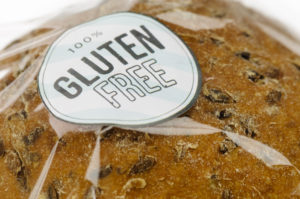While a healthy diet includes a wide range of nourishing foods, individuals who suffer from irritable bowel syndrome (IBS) may experience issues with certain foods, which can lead to digestive symptoms.
The specific types of foods that cause IBS are different for everyone, therefore, it isn’t possible to create a solid list of foods that should completely be avoided. However, some of the most common triggers of IBS include fried foods, dairy, and alcohol. When these types of triggers are avoided, many people experience the following:
- Less bloating
- Less cramping
- More regular bowel movements
It is always best to consult with an irritable bowel movement specialist so our team can effectively diagnose, manage, and treat your symptoms. If you are seeking a trusted and experienced irritable bowel movement specialist, feel free to contact our team for more information.
Here are some of the most common foods that can make IBS uncomfortable:
Insoluble fiber
Although fiber is important for most diets because it keeps the gut healthy, there is a certain type of fiber (insoluble fiber) that may make bloating and pain worse for those who suffer from IBS. While fiber tolerance is different for everyone–even with people with IBS–this is a testament to how everyone is different in terms of what they are able to tolerate.
In fact, while some people with IBS may experience symptoms consuming insoluble fiber, there are others who may not experience any symptoms at all.
Contrarily, soluble fibers may be an ideal choice for those with IBS, according to the American College of Gastroenterology (ACG). In fact, ACG recommends taking soluble fiber supplements as an inexpensive and effective treatment for IBS. Based on the above, you can see that an ideal diet for IBS ranges from person to person. Therefore, it is always best to speak with an irritable bowel movement specialist to determine what is best for you.
Gluten

Gluten is a category of proteins that includes rye, wheat, and barley. Gluten can cause issues for some people with IBS. In fact, some individuals have a serious immune reaction to gluten, which is known as celiac disease. There are other individuals who have gluten intolerance.
Some doctors may suggest removing gluten from the diet to see if IBS symptoms improve. If those with IBS notice that gluten makes symptoms worse, then it is a good idea to remove it from your diet.
The good thing about this is, if you have IBS and notice that gluten worsens your symptoms, there are many gluten-free products now on the market that you can substitute for, including pizza, pasta, cookies, and more.
Dairy
Dairy is another common issue for those with IBS problems. Because many dairy products are high in fat, it can lead to diarrhea. It is best to opt for lowfat or nonfat dairy products, which may reduce symptoms. If you believe that dairy products are triggering your IBS symptoms, then try switching to dairy alternatives, such as plant-based alternatives and soy-based cheese.
Fried foods
Fried foods can trigger issues for people with IBS. While fried foods are common in the Western diet, it is important to keep an eye on the amount of fried food you consume and perhaps eliminate it from your diet to determine if your IBS symptoms have improved. Fried foods can be more difficult to digest, causing digestive issues. For a healthier alternative, you can try baking or grilling your foods instead.
Beans and legumes
While beans and legumes are typically an important source of fiber, they can still trigger IBS symptoms. This is because beans and legumes carry a certain compound, known as oligosaccharides, that make it difficult to digest.
Although beans and legumes can help constipation, they are also known to cause:
- Cramps
- Bloating
- Gas
 Caffeinated drinks and alcohol
Caffeinated drinks and alcohol
Caffeinated drinks, such as coffee, sodas, and energy drinks can trigger some people with IBS. In addition, alcoholic drinks are another trigger for people with IBS. Because alcohol can cause dehydration, this can affect digestion.
Processed foods
Another common problem for people with IBS includes processed foods. Because processed foods contain a lot of added sugar, salt, and fat, this can become a problem for those with IBS; however, eating too much of any processed foods can become a health problem for anyone.
Contact Our Team Today
If you suffer from symptoms of IBS, then it is important to contact our team to schedule an appointment with our irritable bowel movement specialist. Our team is here to help every step of the way.


